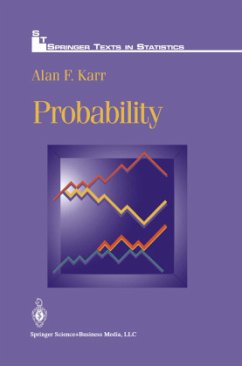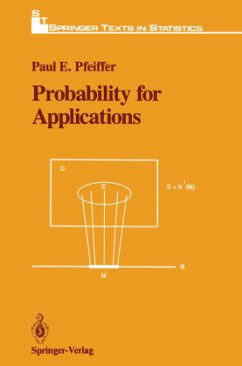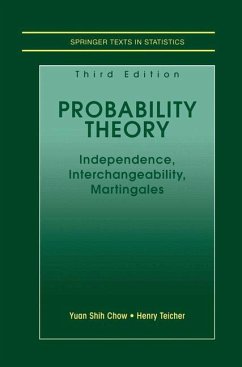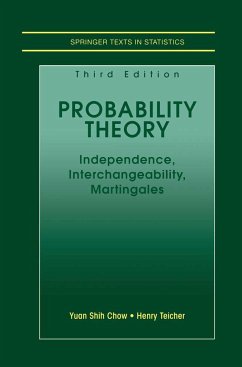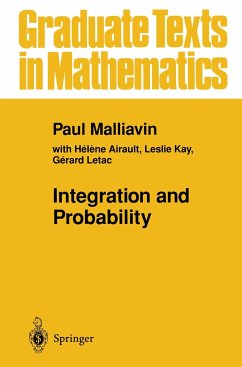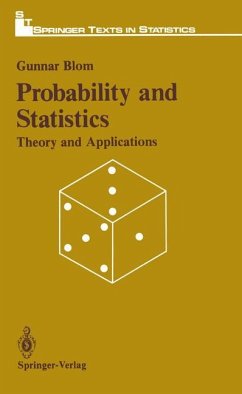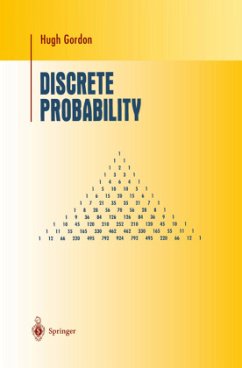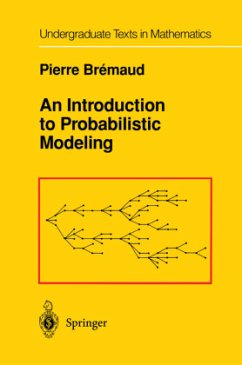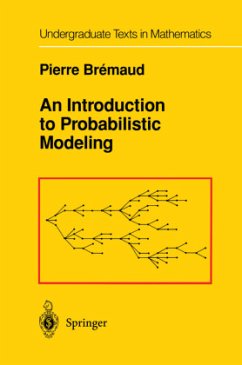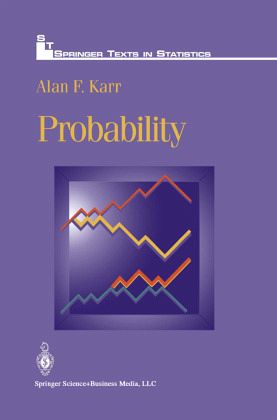
Probability
Versandkostenfrei!
Versandfertig in 1-2 Wochen
82,99 €
inkl. MwSt.
Weitere Ausgaben:

PAYBACK Punkte
41 °P sammeln!
This book is a text at the introductory graduate level, for use in the one semester or two-quarter probability course for first-year graduate students that seems ubiquitous in departments of statistics, biostatistics, mathemat ical sciences, applied mathematics and mathematics. While it is accessi ble to advanced ("mathematically mature") undergraduates, it could also serve, with supplementation, for a course on measure-theoretic probability. Students who master this text should be able to read the "hard" books on probability with relative ease, and to proceed to further study in statistics or...
This book is a text at the introductory graduate level, for use in the one semester or two-quarter probability course for first-year graduate students that seems ubiquitous in departments of statistics, biostatistics, mathemat ical sciences, applied mathematics and mathematics. While it is accessi ble to advanced ("mathematically mature") undergraduates, it could also serve, with supplementation, for a course on measure-theoretic probability. Students who master this text should be able to read the "hard" books on probability with relative ease, and to proceed to further study in statistics or stochastic processes. This is a book to teach from. It is not encyclopredic, and may not be suitable for all reference purposes. Pascal once apologized to a correspondent for having written a long letter, saying that he hadn't the time to write a short one. I have tried to write a short book, which is quite deliberately incomplete, globally and locally. Many topics, including at least one of everyone's favorites, are omitted, among them, infinite divisibility, interchangeability, large devia tions, ergodic theory and the Markov property. These can be supplied at the discretion and taste of instructors and students, or to suit particular interests.





